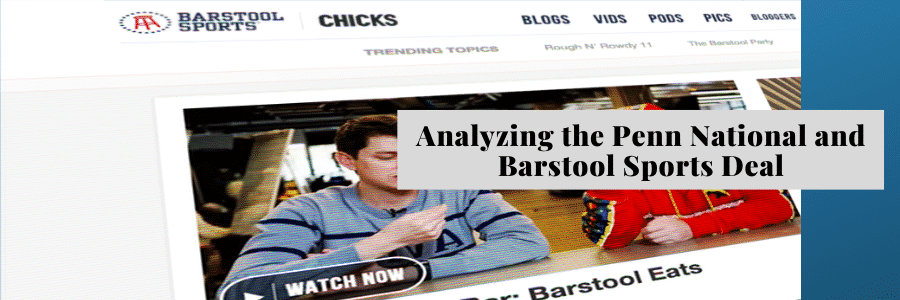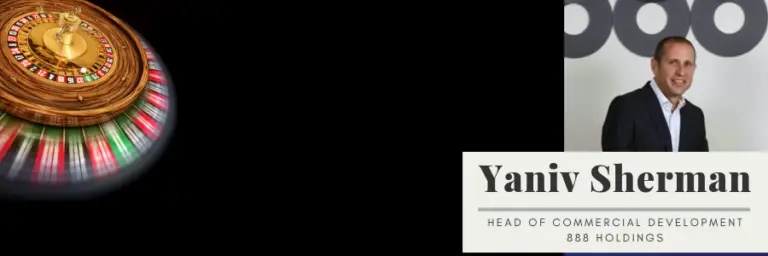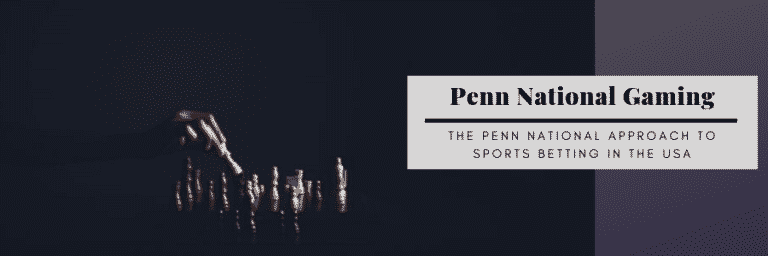Analyzing The Barstool Sports-Penn National Deal Is Tough, And That’s OK

If you’re having trouble understanding the Penn National-Barstool deal don’t worry, you have plenty of company.
In an industry full of mergers and acquisitions (many measured in billions of dollars), Penn National’s acquisition of a minority stake in Barstool Sports is getting , thanks to the peculiarity that is Barstool Sports.
Some people are on board with the acquisition and see Barstool as a conduit to new customers and a path forward for a Barstool Sportsbook.
Others see it as another soon-to-fail mashup of media and gambling.
There is also a camp that believes the usually conservative Penn National and the envelope-pushing Barstool Sports will have a difficult time getting on the same page.
And still, others, who see Barstool as a toxic entity, are simply rooting for it to fail.
I don’t think any of these takes are correct. And the reason no one really knows how to explain the deal is because no one really understands Barstool Sports or its demographic.
Barstool Isn’t Your Dad’s Media Company
First and foremost, if you talk about Barstool as a traditional media company you should stop talking. The company doesn’t abide by or adhere to any traditional norms. Like Elvis, Black Sabbath, or Rage Against the Machine, Barstool is essentially creating a new branch of media and doesn’t fit into a conventional box.
Furthermore, Barstool is a media company in the same way Disney is a media company. Both companies derive a similar percentage of revenue from their media offerings with things like merchandise and live events rounding out their portfolio.
Trying to neatly define Barstool, or its audience for that matter is an exercise in futility. Barstool has evolved beyond a media company. Barstool is unique. Comparing it to anything with the word “media” in it, past or present, is flawed.
I’ve personally known of Barstool for a decade and have been a semi-regular visitor to the site since the “Manhunt” days. That said, I don’t really know how to explain what Barstool is. Even the employees have a hard time succinctly summing up what it is, largely because it’s an ongoing experiment. Like George pitching his show about nothing to the NBC execs, Barstool simply is what it is, and you have to accept that you don’t understand it.
Basically, whenever you hear someone say Barstool is x, or the Barstool-Penn deal will succeed or fail because of y, this is someone with only a cursory understanding of Barstool. Someone that’s not looking at the big picture who is ignoring the results.
Anyone with a deeper understanding of Barstool knows that it’s complicated and wouldn’t pretend to know how this will work out. Like Julio Franco’s unorthodox batting stance, or Patrick Mahomes’ unorthodox throws, conventional wisdom says it shouldn’t work. It just does, and you don’t try to change it. Coaches who try to change it or rein it in get fired.
The Barstool Brand Makes Things Work That Shouldn’t
Branding is interesting. Some brands resonate, but few brands transcend into an ideology like Barstool. Barstools core user base identifies with the brand.
And they’re loyal and easily mobilized. And that’s where the disconnect comes in. Unlike traditional media companies (be it print or digital) Barstool readers have a different level of engagement.
A great example of this occurred this weekend when a new Barstool employee started pushing a random catch-phrase “Zillion Beers” and sold $1.5 million worth of merchandise – with an assist from Barstool Founder Dave Portnoy .
This shouldn’t work. This is essentially the hula hoop plotline from The Hudsucker Proxy, where someone is seeing something everyone else isn’t. No other company would entertain the idea, and even if they did, no other company could actually pull it off.
A random employee, creating a random phrase, printing it on t-shirts and other merchandise, going viral, and selling $1.5 million worth of it in a weekend is inexplicable. But it’s par for the course at Barstool. This is what they do, and it’s ok to not understand how they do it, I certainly don’t.
The big question is will Penn try to understand and make sense of the phenomenon that is Barstool, or will Barstool be allowed to steer its own ship? That interplay will likely determine the success of Barstool Sports in the gambling industry.







